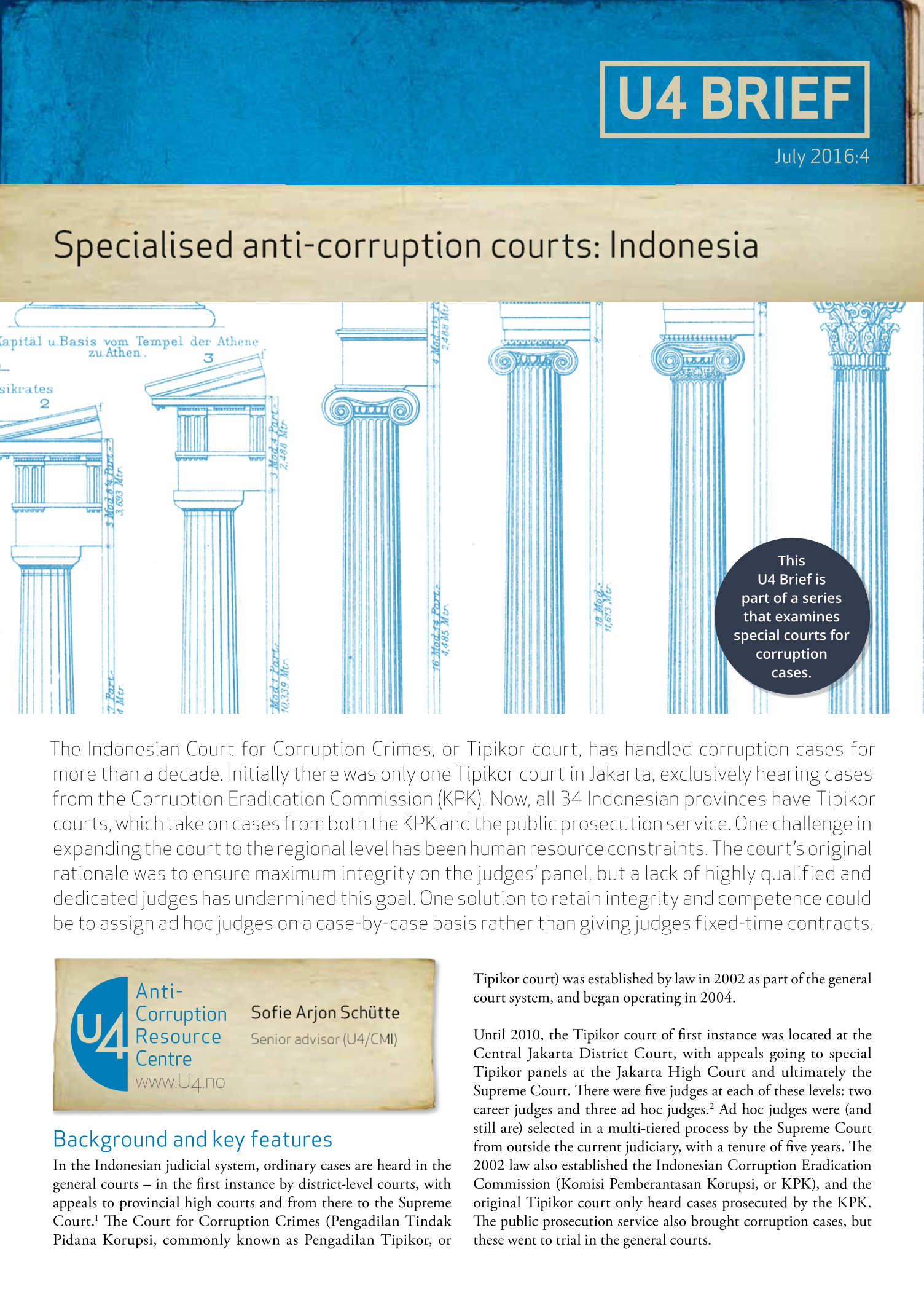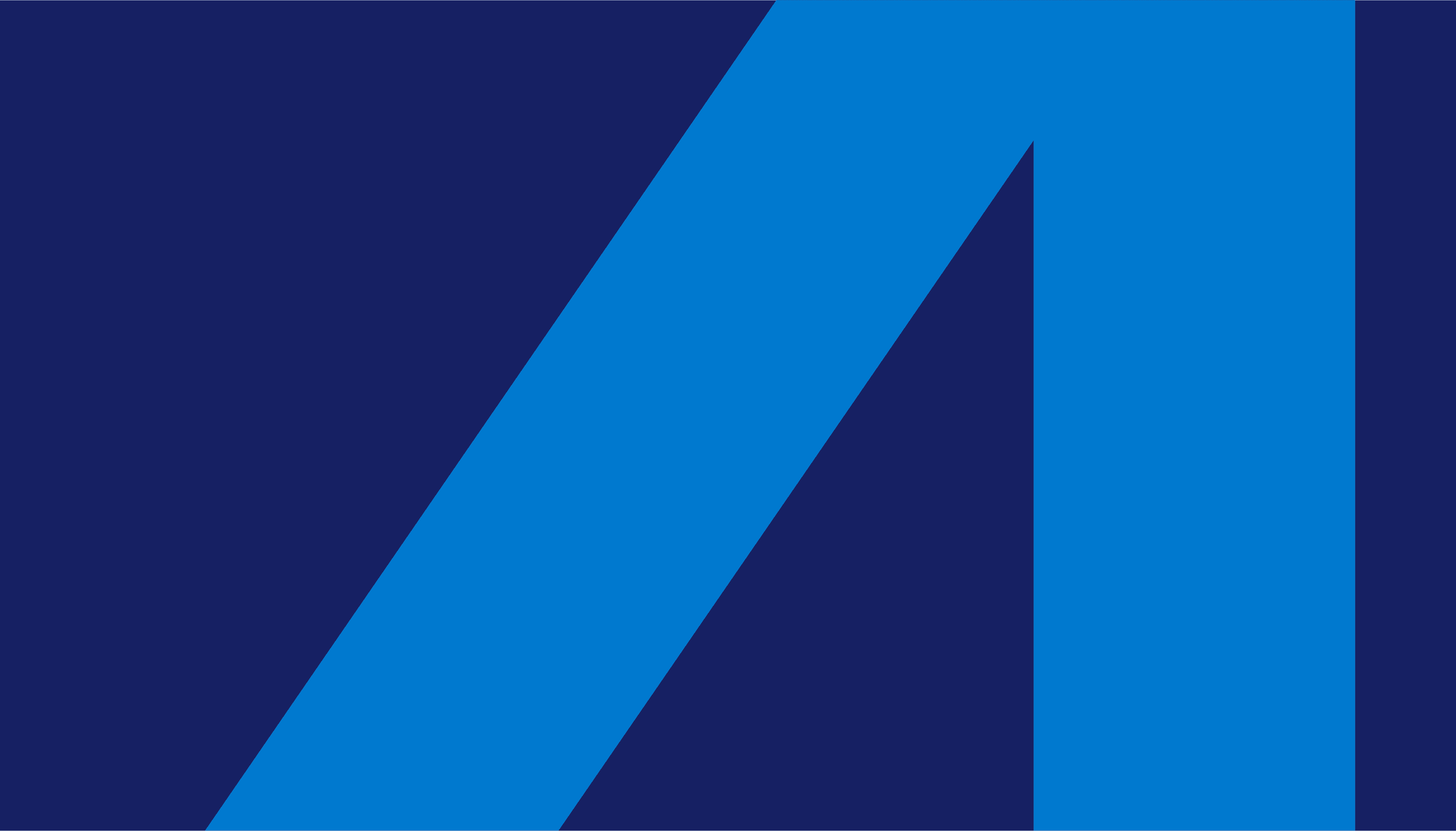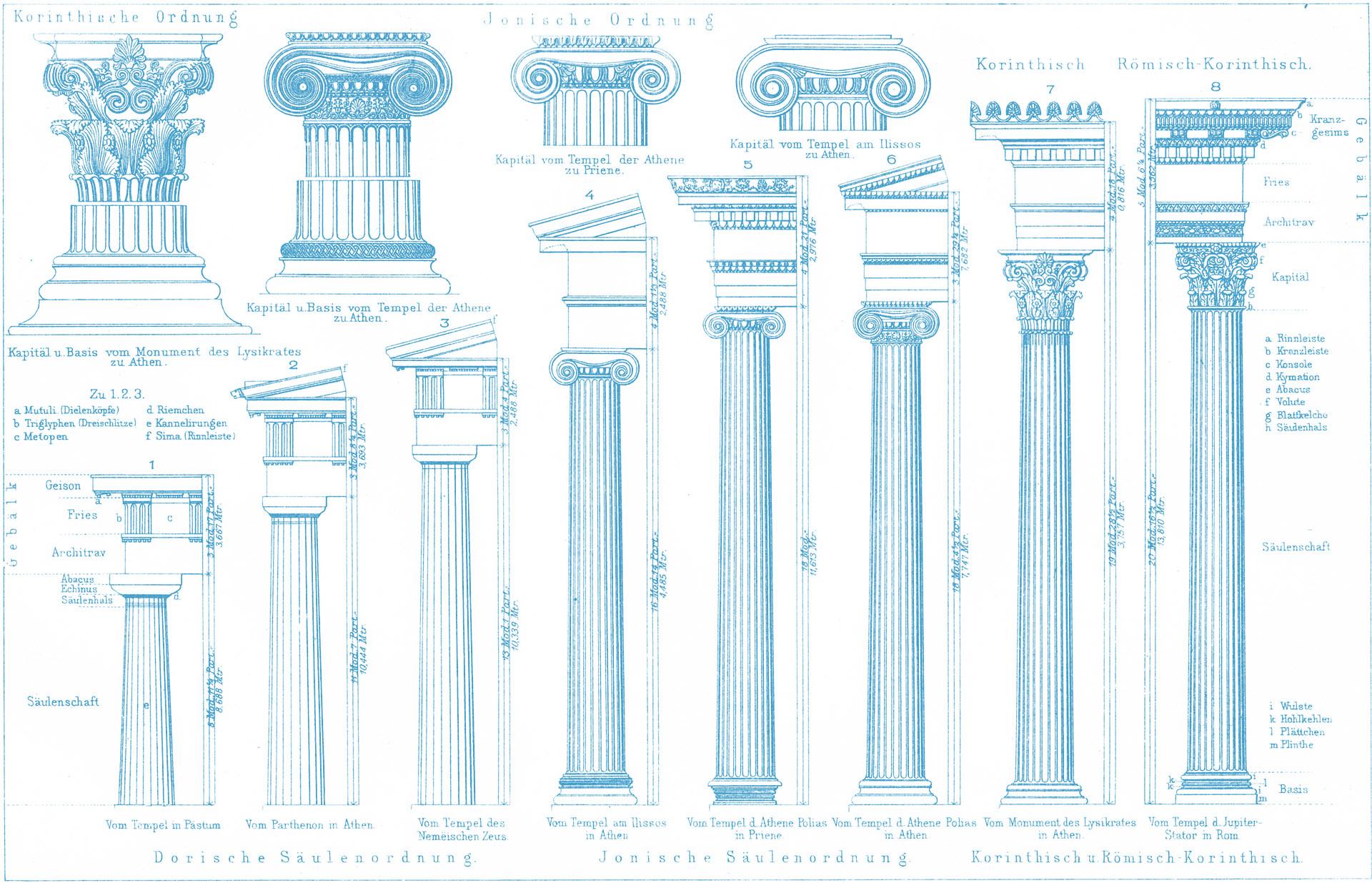U4 Brief
Specialised anti-corruption courts: Indonesia
The Indonesian Court for Corruption Crimes, or Tipikor court, has handled corruption cases for more than a decade. Initially there was only one Tipikor court in Jakarta, exclusively hearing cases from the Corruption Eradication Commission (KPK). Now, all 34 Indonesian provinces have Tipikor courts, which take on cases from both the KPK and the public prosecution service. One challenge in expanding the court to the regional level has been human resource constraints. The court’s original rationale was to ensure maximum integrity on the judges’ panel, but a lack of highly qualified and dedicated judges has undermined this goal. One solution to retain integrity and competence could be to assign ad hoc judges on a case-by-case basis rather than giving judges fixed-time contracts.
This brief is part of a series of case studies on special anti-corruption courts. The case studies discuss the courts’ design and whether they have lived up to the expectations that led to their establishment. We draw lessons for their particular country context, but also specialisation of courts more generally.
These case studies will be complemented by a forthcoming issue paper discussing and comparing specialised anti-corruption courts around the world.

Cite this publication
Schütte, S. 2016. Specialised anti-corruption courts: Indonesia. Bergen: Chr. Michelsen Institute (U4 Brief 2016:4) 4 p
Disclaimer
All views in this text are the author(s)’, and may differ from the U4 partner agencies’ policies.
This work is licenced under a Creative Commons Attribution-NonCommercial-NoDerivatives 4.0 International licence (CC BY-NC-ND 4.0)


